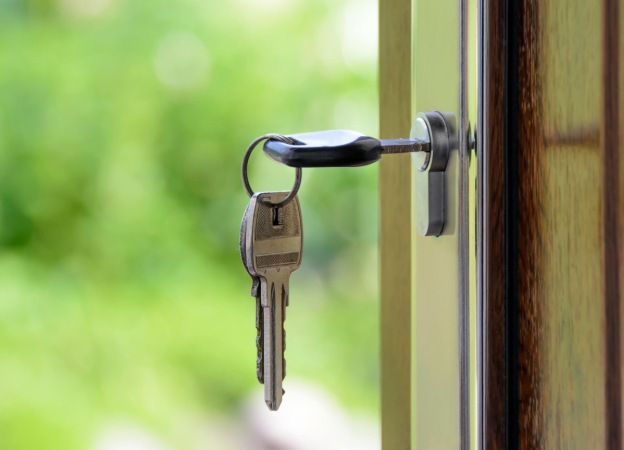
Whether you’re a first-time buyer, moving up to a bigger home as your family grows, or downsizing to something more manageable now the kids have grown and gone, finding the perfect property is an exciting time.
Chances are you’ve been scouring the property portals for months and are on first name terms with all your local estate agents. You’ve probably viewed numerous properties and had to make some hard choices before you finally settled on the ideal home for your next move.
Now, it’s important to work promptly to arrange your purchase as quickly as possible, before someone else chips in with a better offer, or before the sellers change their mind. That’s when the expert team of local property solicitors at Holdens Law can make all the difference. As many as one in three house purchases fall through in the UK, and it’s our job to make sure that your purchase isn’t one of them.
Conveyancing
It’s always great news to have your offer accepted on the property you plan to buy. As soon as it is, you need to get in touch with Holdens Law, your local property solicitor, to get you moving as soon as possible.
There are lots of details to be checked to make sure that your potential purchase is up to scratch. You need to be sure that there are no issues with the property itself, the deeds, or with the local area. You also need to make sure that your mortgage lender is happy to provide the funds you need to buy this particular property.
There are a few key parts of the purchase process that your local property solicitor will guide you through. These include:
- Survey – you need to have the property checked by an experienced surveyor to make sure that there are no issues, such as damp or subsidence, which will affect the value of your new home.
- Local searches – as well as checking the property itself, you also need to make sure that there are no environmental issues, such as flood risks, and no future plans, such as road building or a new estate, that will affect the value and enjoyment of your new home.
- Title check – your local property solicitor will check that the title and deeds are all in order and that there are no issues that you need to be aware of.
- Property information form – your sellers will provide you with a form giving details of the property and stating what they are taking and leaving. You need to examine this carefully, so you know exactly what you’re buying. You may be able to negotiate a separate price for fixtures like curtains and lampshades.
- Raise any concerns – once you have the all the information about the home you hope to buy, your local property solicitor will raise any concerns with the seller’s via their solicitors. They will ask questions on your behalf and get clarification on any issues that you’re unsure about.
- Final negotiations – once your sellers have responded to your questions, you may want to adjust your original offer. Your seller is not obliged to accept a lower offer, because at this stage the sale is not binding. You will often have to haggle a little to find a price you’re both happy with. The buyer’s estate agent will normally handle these negotiations.
- Drawing up contracts – once all the checks have been done, and the final sale price has been agreed, your local property solicitor will work with the seller’s representatives to draw up the contract for the purchase. Both buyer and seller need to sign this contract ready for exchange.
- Exchange of contracts – this is a major milestone in the sale process. Once contracts have been exchanged, the sale, and the sale price, are legally binding.
- Paying a deposit – on exchange of contracts, you will normally be asked to make a deposit of around 10% of the agreed price. You may forfeit this if you pull out of the purchase after exchange. In most cases, you don’t have to find a large chunk of cash. The deposit paid by the buyer of your current property will be used to cover most, if not all, of the deposit you need to pay. However, if you’re a first-time buyer, then you’ll need to find this deposit.
- Completion day – the completion date is agreed when contracts are exchanged and is usually a week or two later. This is the day that you pay the balance, get the keys, and finally start your new life in your new home.
- Registering your purchase – your local property solicitor will contact the Land Registry to let them know that you are the new owner of the property (and register your mortgage lender if applicable).
- Final settlement – once completion has taken place, you will need to pay your local property solicitor’s fees and arrange to pay any Stamp Duty Land Tax due on the purchase.
How Holdens Law can help
With a third of all property purchases falling through, you need experienced experts on your team to process your property purchase as quickly as possible, as Jemma Higson, from the Holdens Law conveyancing team explains:
“Purchase conveyancing is all about protecting you as a buyer,” says Jemma. “Holdens Law works promptly and professionally, to get you moving as soon as possible, but we never cut corners. We make sure you know exactly what you’re buying, so there are no nasty surprises waiting when you move in.”
You’ll find the conveyancing process laid out in detail on our website, or to find out more about how Holdens Law can help with your property purchase, get in touch today.

